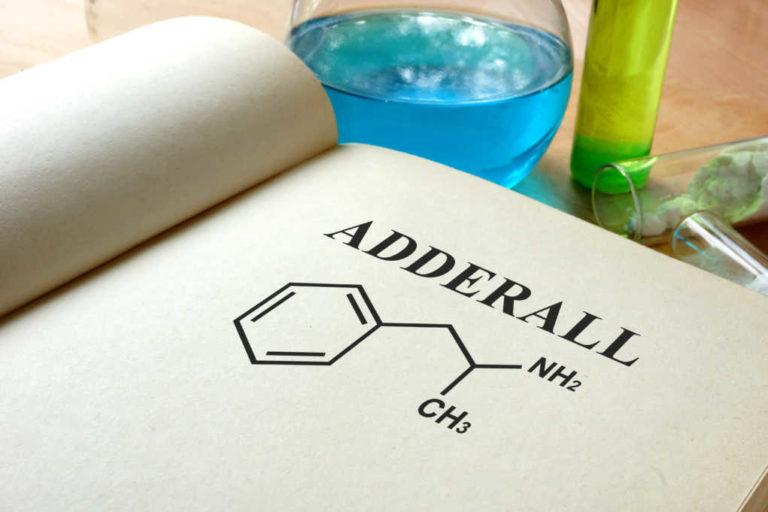Adderall is a combination drug of dextroamphetamine (dextroamphetamine) and amphetamine that reduces hyperactivity and impulsivity in people with Attention Deficit Hyperactivity Disorder.
It is also a popular study drug for college students, professionals and other people who are looking to improve their productivity and focus even if they do not have an ADHD diagnosis.
Despite claims by many that Adderall improves their academic performance, it appears to only affect minor improvements for individuals without ADHD. Evidence suggests the drug may even have an opposite effect.
Adderall for ADHD:
People with ADHD are often easily distracted and have trouble completing tasks. You may feel restless, fidgety and impulsive.
Adderall stimulates your central nervous system and puts you in a “fight or flee” state. It can increase your heart rate, blood pressure and make you feel energized.
This stimulant effect can help people with ADHD, who struggle with paying attention and focus. This might not translate to better performance and learning, especially for those who do not have the underlying impairments Adderall tries to correct.
Why Adderall Might Not Help You
While stimulants can improve sustained attention and focus, they may backfire if your attention is drawn to irrelevant distractions. Cognitive flexibility (the ability of adapting to changing conditions) becomes impaired as cognitive tasks become more difficult.
Adderall use can cause false recognition.
Amphetamines increase the number of memory errors and also boost confidence in wrong responses. This can have disastrous effects on academics and professionals.
You should also consider the side effects of Adderall usage :
- dry mouth
- Insomnia (leading to a reduced sleep quality, increased stress and fatigue).
- Increased blood pressure and heartbeat (increasing risk of cardiovascular diseases)
- Anxiety, depression and psychotic symptoms
Amphetamines’ euphoric effect can lead to addiction.
Healthier Ways To Improve Your Cognitive Performance
As research shows that stimulants can correct cognitive deficits more effectively than ” improving performance “, the dream of “smart drug” that will magically improve cognition is fading.
There are many other ways to improve cognitive performance that are safe, effective and evidence-based.
Exercise improves mental and physical health and oxygenates the brain.
You can improve your alertness by improving the quality of sleep you get.
You can learn healthy strategies to reduce stress and cope with it, so that you are able to accomplish more without feeling overwhelmed.
Do not wait until the very last minute to try and cram in everything. This is unlikely to work, even with stimulants.
Although you may feel that the amphetamines help, they are only covering up your short-term struggles without addressing the root causes of the inability to focus.







